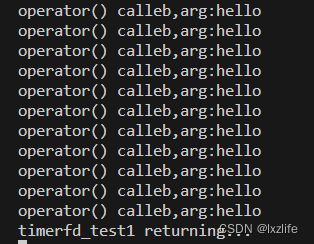- Linux下JVM相关指令详解及案例介绍
码农阿豪@新空间
好“物”分享linuxjvm运维
个人名片作者简介:java领域优质创作者个人主页:码农阿豪工作室:新空间代码工作室(提供各种软件服务)个人邮箱:[
[email protected]]个人微信:15279484656个人导航网站:www.forff.top座右铭:总有人要赢。为什么不能是我呢?专栏导航:码农阿豪系列专栏导航面试专栏:收集了java相关高频面试题,面试实战总结️Spring5系列专栏:整理了Spring5重要知识点与
- C语言哈希表用法
朽木白露
#c语言c语言
转自:https://blog.csdn.net/nameofcsdn/article/details/107297361参考:https://blog.csdn.net/whatday/article/details/95926766推荐:https://blog.csdn.net/fan_h_l/article/details/107241520哈希表在头文件"uthash.h"中已经有了,只
- linux查找文件里面的内容,快捷键
德玛西亚没有明天
vimaa.php输入/keyword,keyword是需要查找的关键字,按Enter健,进行搜索关键字;按键n跳至下一个匹配
- 哈希表总结-C语言版
vanguard2021
Leetcode刷题哈希表
目录1、哈希表的原理2、自己实现的hash表--C语言版3、C语言开源项目uthash.h中的hash接口使用指南3.1uthash.h头文件说明3.2常见的uthash.h接口以及使用方法4、实践应用参考资料:1、哈希表的原理哈希表的关键思想是使用哈希函数将键映射到存储桶。更确切地说,当我们插入一个新的键时,哈希函数将决定该键应该分配到哪个桶中,并将该键存储在相应的桶中;当我们想要搜索一个键时,
- 哈希表(C语言实现)
写代码的大学生
散列表c语言哈希算法
在计算机世界中,哈希表如同一位聪慧的图书管理员。他知道如何计算索书号,从而可以快速找到目标图书。文章目录1.哈希表的概念1.1哈希表的基本操作1.2哈希表的常用操作2.基于数实现哈希表2.1哈希表的结构体定义2.2哈希表的初始化2.3删除哈希表2.4哈希函数2.5查找哈希表中的元素2.6删除哈希表中的元素2.7添加哈希表元素3.哈希冲突与扩容4.链式地址改良哈希表4.1链式地址哈希表结构体定义4.
- 哈希表(C语言版)
coding_rui
数据结构与算法C语言散列表c语言数据结构
文章目录哈希表原理实现(无自动扩容功能)代码运行结果分析应用哈希表如何统计一段文本中,小写字母出现的次数?显然,我们可以用数组inttable[26]来存储每个小写字母出现的次数,而且这样处理,效率奇高。假如我们想知道字母’k’出现的次数,直接访问元素table['k'-'a']即可,时间复杂度为O(1)。在现实生活中,我们经常需要存储键值对(key-value)数据,比如上面的‘a’:10,‘b
- LeetCode 232: 用栈实现队列
Ning_.
LeeCodeleetcode算法数据结构
LeetCode232:用栈实现队列题目描述使用栈实现队列的操作。支持以下操作:MyQueue():初始化队列。push(x):将元素x推入队列。pop():从队列中移除元素。peek():返回队列头部的元素。empty():检查队列是否为空。队列的先进先出(FIFO)原则可以通过两个栈来模拟。栈A用于入队操作,栈B用于出队操作。C语言实现#include#include//定义栈结构体typed
- Qt Creator用法详解
不如温暖过生活
C++界面开发框架Qt最新资讯Qtqtcreator
Qt自带集成开发环境(IDE),名为QtCreator。它可以在Linux、OSX和Windows上运行,并提供智能代码完成、语法高亮、集成帮助系统、调试器和剖析器集成,还集成了所有主要的版本控制系统(如git、Bazaar)。除了QtCreator外,Windows上的开发人员还可以使用Qt的VisualStudio插件。也可以使用其他的IDE(如KDE上的KDevelop)。但当然绝不是必须使
- 【C++】双指针算法专题
啊QQQQQ
c++数据结构开发语言
目录前言对撞指针快慢指针习题练习1.移动零.-力扣(LeetCode)算法思路算法流程代码实现2.复写零.-力扣(LeetCode)算法思路算法流程代码实现3.快乐数.-力扣(LeetCode)算法思路算法流程代码实现4.盛水最多的容器.-力扣(LeetCode)算法思路代码实现5.有效三角形的个数.-力扣(LeetCode)算法思路代码实现6.和为S的两个数.-力扣(LeetCode)算法思路代
- C/C++程序在不同环境中迁移时的注意事项
coolhuhu~
cpp工程问题linuxc++linux工程实践
问题在你的开发环境中,编译、链接、运行测试都没问题,迁移到其他机器上运行程序时,程序运行不起来或运行异常。场景一开发环境的机器CPU为ARM架构,而测试环境的机器CPU为x86架构。场景二测试环境中缺乏程序依赖的库。体现在没有把开发环境中编译时所依赖的相关库迁移到测试环境中。场景三测试环境中程序运行时,所依赖库的版本不一致。一种场景是,程序在开发环境中编译、链接依赖libstdc++.so.6.0
- golang 调用 c++ (cgo)
LRZ0001
Goc++golang
文章目录目录结构各文件对应的代码library.hpplibrary.cpplibrary-bridge.hlibrary-bridge.cppmain.go方式一:调用静态链接库编译静态链接库运行方式二:调用动态链接库生成动态链接库运行注意:调用动态库会有加载不到的情况参考文章目录结构[root@localhostexample03]#tree.├──library│├──library-bri
- golang调用c库函数
wx_kingstone
cppgolangc++golanggoc语言cgo
golang调用c库函数c语言相关代码golang相关代码golang编译本文章介绍了golang如何调用c语言库函数。如果想调用c++库函数,建议在c++上再封一层c语言代码,编译成c语言动态库,再被golang调用。c语言相关代码cc文件、so编译省略c头文件,mytest.h#ifndef__MYTEST_H_#define__MYTEST_H_#ifdef__cplusplusextern
- 在Linux(CentOS、Ubuntu等等)中安装Erlang和Elixir
检查旧版本$uname-aLinuxws-ersyia-05.4.241-1-tlinux4-0017.10#1SMPWedMay817:01:03CST2024x86_64x86_64x86_64GNU/Linux$elixir--versionErlang/OTP24[erts-12.3.2.17][source][64-bit][smp:8:2][ds:8:2:10][async-threa
- C语言【基础篇】之函数——开启模块化开发的钥匙
EnigmaCoder
cc语言开发语言学习
目录前言函数基础什么是函数?函数的语法结构函数的声明与定义头文件(.h)与源文件(.c)的分工为什么需要函数原型?️参数传递机制值传递vs.指针传递修改外部变量的方法返回值与void类型如何返回多个值无返回值函数的应用场景函数进阶⚙️递归函数递归原理与终止条件递归的优缺点✍️函数指针定义与赋值应用场景函数的作用域与生命周期变量的作用域规则static关键字的作用头文件与多文件编程#ifndef方
- FFmpeg 源码编译安装
coolhuhu~
语音linuxffmpeg
参考:https://trac.ffmpeg.org/wiki/CompilationGuide/UbuntuLinux(Ubuntu)下载FFmpeg源码,并将其解压,这里我将它放在~/ffmpeg_source目录下;cd~/ffmpeg_sourceswget-Offmpeg-snapshot.tar.bz2https://ffmpeg.org/releases/ffmpeg-snapsho
- 从入门到精通:Postman 实用指南
a小胡哦
postmanlua测试工具
Postman是一款超棒的API开发工具,能用来测试、调试和管理API,大大提升开发效率。下面就给大家详细讲讲它的安装、使用方法,再分享些实用技巧。一、安装Postman你能在Postman官网(https://www.postman.com)下载对应版本,它支持Windows、macOS和Linux系统。Windows系统安装:下载好安装包后,直接双击运行。安装向导出现,点击“Next”,阅读并
- 高通Linux安全指南(二)
weixin_38498942
linux安全Qualcomm
功能高通TEE增强了安全功能及其扩展。它提供了接口,允许通过受信任应用程序(TA)扩展安全功能集。某些功能集成在硬件支持的TZ架构中,提供了一种系统安全配置。这些功能可以进一步定制以满足特定需求。有关高通TEE和安全组件的信息,请参阅高通TEE和架构。在本全面教程中,解锁在高通设备上安全启动技术的全部潜力。从生成加密密钥到编程硬件熔断器和管理安全启动状态,本视频详细介绍了每个步骤。适合希望通过认证
- 实现Shell免密登录的详细指南
醉心编码
脚本基础shell脚本
实现Shell免密登录的详细指南前提条件步骤一:生成SSH密钥对步骤二:将公钥复制到远程服务器步骤三:配置SSH客户端(可选)步骤四:测试免密登录常见问题排查在使用Linux或Unix系统时,我们经常需要通过Shell访问远程服务器。通常,这种访问需要通过SSH(SecureShell)进行,每次连接时都需要输入用户名和密码,这不仅繁琐,而且在某些自动化场景下显得尤为不便。为了实现免密登录,我们可
- Ollama+Fastgpt搭建属于自己的个人知识库
chaoshanarong
aiAI编程AI写作
一、安装dockerdocker下载网址:https://www.docker.com/products/docker-desktop/打开wsl:启用适用于Linux的Windows子系统以管理员身份运行WindowsPowerShell。运行以下命令:dism.exe/online/enable-feature/featurename:Microsoft-Windows-Subsystem-L
- 使用 SCP 命令在 Linux/Debian/Ubuntu 终端中进行文件远程传输
理工男老K
ubuntulinux运维
使用SCP命令在Linux/Debian/Ubuntu终端中进行文件远程传输SCP(SecureCopyProtocol,安全复制协议)是一种命令行实用程序,允许你通过网络在两个主机之间安全地传输文件。它使用SSH(SecureShell,安全外壳协议)进行身份验证和加密,确保传输的数据安全。SCP的基本语法SCP命令的基本语法如下:scp[选项][源文件][目标位置]示例将文件从本地系统复制到远
- 单片机、嵌入式Linux开发大学自学路径
Oriental Son
嵌入式MCU单片机单片机学习stm32mculinux
笔者所修读的专业为物联网工程,物联网工程是一门新兴的、热门的专业,其所涉及的学科更是又多又杂,既有计算机方向的编程语言(如C、C++、Java、Python等)、数据结构与算法、操作系统、移动端应用开发、机器学习等;软硬结合的方向有数字电路单片机开发、嵌入式Linux开发等;硬件、电路方向有电路分析、数字电路、模拟电路、传感器原理、RFID、FPGA开发等;涉及信号处理的有信号与系统、通信原理等。
- Linux安全与密钥登录指南,零基础入门到精通,收藏这篇就够了
网安导师小李
程序员编程网络安全linux安全运维web安全网络服务器计算机网络
在使用Linux服务器时,确保服务器的安全至关重要。本文将为你介绍一些关键的Linux安全措施,包括开启密钥登录、查看登录日志、限制登录IP以及查看系统中能够登录的账号。以下内容适合小白用户,通过简单的操作就能有效提升服务器的安全性。目录Linux安全概述密钥登录的配置生成密钥对配置SSH密钥登录查看登录日志限制IP访问设置IP封禁允许特定IP访问查看系统可登录的账号1.Linux安全概述Linu
- 如何学习ARM嵌入式系统的设计
AAAA%
学习嵌入式硬件单片机
学习ARM嵌入式系统设计是一个系统性的过程,需要理论知识与实践技能相结合。以下是一份详细的学习路径指南,帮助你逐步掌握ARM嵌入式系统的设计:1.基础知识储备了解计算机体系结构:学习计算机组成原理,了解CPU、内存、IO等基本概念。学习C语言编程:C语言是嵌入式系统开发的主流语言,需要熟练掌握。理解操作系统原理:虽然嵌入式系统可能不总是运行完整的操作系统,但了解操作系统的基本概念对于理解系统设计至
- 开发工具篇第二讲:git使用技巧 从基础到进阶(快速入门/高阶用法/git别名/项目实战/gitLab)
程序员 jet_qi
常用开发工具gitjavarebasecherry-pick
git是一个开源的分布式版本控制系统,可以有效高速地处理从很小到非常大的项目版本管理。它是LinusTorvalds为了帮助管理Linux内核开发而开发的一个开放源码的版本控制软件,git作为版本管理工具,程序员是必须要掌握的。本文是开发工具篇第二讲:主要介绍了git的常规使用方法及在日常开发实战场景中git的应用。文章目录1、认识git2、git原理2.1、git与其他版本管理系统的主要区别2.
- 从 size_t 到面试官的微笑:我的 C++ 面试历险记
Vitalia
C/C++#面试经验c++面试C
面试复盘之前面试遇到一些很好玩的事情,也学到了很多知识,积累了很多经验。某中厂面试的虚拟表演的第三轮:有一道题我用了经典for循环,大概这样:vectorarr={0,1,2);for(inti=0;i=0;i--){//xxxxxxxx}然后就搞笑了,超时,循环退不出来了。我一拍脑门,size_t是无符号类型诶,赶紧改成int,然后美滋滋。面试官一脸冷漠看完全程,说:我不会C++,也不知道你说的
- python学习 列表 字典 集合 面对对象编程 闭包 装饰器 函数式编程 作用域 异常处理
Scikit-learn
机器学习python算法python学习开发语言
SIGIA_4Ppython学习列表字典集合面对对象编程闭包装饰器函数式编程作用域异常处理本文连接简介SIGIA_4P网址a.课程OKRObjectivesandKeyResults即目标与关键成果法目标,Objectives:掌握AI领域的Python开发成果1KR1linux目录结构[外链图片转存失败,源站可能有防盗链机制,建议将图片保存下来直接上传(img-r864ykpN-16917885
- 《Ollama 与 DeepSeek 整合应用入门指南》一、二、三章
Allen-Steven
ollamadeepseek
第一章:工具概述与核心价值1.1Ollama技术解析本地化部署优势:无需网络连接的数据隐私保护跨平台架构设计:支持Windows/macOS/Linux全平台模型管理引擎:自动化处理模型依赖与版本控制1.2DeepSeek模型特性多模态处理能力:文本生成、代码理解、数学推理中文优化架构:针对中文语料的特殊训练策略模型家族图谱:从1.3B到67B的参数规模选择1.3技术整合价值本地智能计算:企业数据
- C语言-note004
CSDNy666999
c语言开发语言
1.内存函数1-1memcpy内存拷贝memcpy(参数1【目的】,参数2【源】,参数3【无符号整型】)memcpy函数不能用来处理重叠的内存空间的数据拷贝使用memmove实现重叠内存空间的数据拷贝void*memcpy(void*dest,constvoid*src,size_tnum){}void*:通用类型指针1-2memmove内存拷贝分两种情况拷贝:(1)从前向后拷贝destsrc示例
- 【C++】类和对象-上
此生只爱蛋
C++c++
>本系列为初阶C++的内容,如果感兴趣,欢迎订阅>个人主页:[小编的个人主页])小编的个人主页>欢迎大家点赞收藏⭐文章>✌️☝️目录前言类定义访问限定符类域实例化对象对象的大小this指针前言C语言是一门面向过程的语言,在C语言中,我们用结构体来定义复合数据类型的结构。C++在设计中保留了结构体(struct)类型的优点,C++引入了类,类已经包括了结构体类型的所有功能,并且功能更强,更符合面向对
- 【Linux探索学习】第二十九弹——线程概念:Linux线程的基本概念与线程控制详解
GG Bond.ฺ
Linux探索学习linux学习算法运维
Linux学习笔记:https://blog.csdn.net/2301_80220607/category_12805278.html?spm=1001.2014.3001.5482前言:在现代操作系统中,线程是程序执行流的最小单元。与进程相比,线程更加轻量级,创建和销毁的开销更小,且线程之间可以共享内存空间,因此在多任务处理、并发编程中,线程的使用非常广泛。Linux作为一个多用户、多任务的操
- java数字签名三种方式
知了ing
javajdk
以下3钟数字签名都是基于jdk7的
1,RSA
String password="test";
// 1.初始化密钥
KeyPairGenerator keyPairGenerator = KeyPairGenerator.getInstance("RSA");
keyPairGenerator.initialize(51
- Hibernate学习笔记
caoyong
Hibernate
1>、Hibernate是数据访问层框架,是一个ORM(Object Relation Mapping)框架,作者为:Gavin King
2>、搭建Hibernate的开发环境
a>、添加jar包:
aa>、hibernatte开发包中/lib/required/所
- 设计模式之装饰器模式Decorator(结构型)
漂泊一剑客
Decorator
1. 概述
若你从事过面向对象开发,实现给一个类或对象增加行为,使用继承机制,这是所有面向对象语言的一个基本特性。如果已经存在的一个类缺少某些方法,或者须要给方法添加更多的功能(魅力),你也许会仅仅继承这个类来产生一个新类—这建立在额外的代码上。
- 读取磁盘文件txt,并输入String
一炮送你回车库
String
public static void main(String[] args) throws IOException {
String fileContent = readFileContent("d:/aaa.txt");
System.out.println(fileContent);
- js三级联动下拉框
3213213333332132
三级联动
//三级联动
省/直辖市<select id="province"></select>
市/省直辖<select id="city"></select>
县/区 <select id="area"></select>
- erlang之parse_transform编译选项的应用
616050468
parse_transform游戏服务器属性同步abstract_code
最近使用erlang重构了游戏服务器的所有代码,之前看过C++/lua写的服务器引擎代码,引擎实现了玩家属性自动同步给前端和增量更新玩家数据到数据库的功能,这也是现在很多游戏服务器的优化方向,在引擎层面去解决数据同步和数据持久化,数据发生变化了业务层不需要关心怎么去同步给前端。由于游戏过程中玩家每个业务中玩家数据更改的量其实是很少
- JAVA JSON的解析
darkranger
java
// {
// “Total”:“条数”,
// Code: 1,
//
// “PaymentItems”:[
// {
// “PaymentItemID”:”支款单ID”,
// “PaymentCode”:”支款单编号”,
// “PaymentTime”:”支款日期”,
// ”ContractNo”:”合同号”,
//
- POJ-1273-Drainage Ditches
aijuans
ACM_POJ
POJ-1273-Drainage Ditches
http://poj.org/problem?id=1273
基本的最大流,按LRJ的白书写的
#include<iostream>
#include<cstring>
#include<queue>
using namespace std;
#define INF 0x7fffffff
int ma
- 工作流Activiti5表的命名及含义
atongyeye
工作流Activiti
activiti5 - http://activiti.org/designer/update在线插件安装
activiti5一共23张表
Activiti的表都以ACT_开头。 第二部分是表示表的用途的两个字母标识。 用途也和服务的API对应。
ACT_RE_*: 'RE'表示repository。 这个前缀的表包含了流程定义和流程静态资源 (图片,规则,等等)。
A
- android的广播机制和广播的简单使用
百合不是茶
android广播机制广播的注册
Android广播机制简介 在Android中,有一些操作完成以后,会发送广播,比如说发出一条短信,或打出一个电话,如果某个程序接收了这个广播,就会做相应的处理。这个广播跟我们传统意义中的电台广播有些相似之处。之所以叫做广播,就是因为它只负责“说”而不管你“听不听”,也就是不管你接收方如何处理。另外,广播可以被不只一个应用程序所接收,当然也可能不被任何应
- Spring事务传播行为详解
bijian1013
javaspring事务传播行为
在service类前加上@Transactional,声明这个service所有方法需要事务管理。每一个业务方法开始时都会打开一个事务。
Spring默认情况下会对运行期例外(RunTimeException)进行事务回滚。这
- eidtplus operate
征客丶
eidtplus
开启列模式: Alt+C 鼠标选择 OR Alt+鼠标左键拖动
列模式替换或复制内容(多行):
右键-->格式-->填充所选内容-->选择相应操作
OR
Ctrl+Shift+V(复制多行数据,必须行数一致)
-------------------------------------------------------
- 【Kafka一】Kafka入门
bit1129
kafka
这篇文章来自Spark集成Kafka(http://bit1129.iteye.com/blog/2174765),这里把它单独取出来,作为Kafka的入门吧
下载Kafka
http://mirror.bit.edu.cn/apache/kafka/0.8.1.1/kafka_2.10-0.8.1.1.tgz
2.10表示Scala的版本,而0.8.1.1表示Kafka
- Spring 事务实现机制
BlueSkator
spring代理事务
Spring是以代理的方式实现对事务的管理。我们在Action中所使用的Service对象,其实是代理对象的实例,并不是我们所写的Service对象实例。既然是两个不同的对象,那为什么我们在Action中可以象使用Service对象一样的使用代理对象呢?为了说明问题,假设有个Service类叫AService,它的Spring事务代理类为AProxyService,AService实现了一个接口
- bootstrap源码学习与示例:bootstrap-dropdown(转帖)
BreakingBad
bootstrapdropdown
bootstrap-dropdown组件是个烂东西,我读后的整体感觉。
一个下拉开菜单的设计:
<ul class="nav pull-right">
<li id="fat-menu" class="dropdown">
- 读《研磨设计模式》-代码笔记-中介者模式-Mediator
bylijinnan
java设计模式
声明: 本文只为方便我个人查阅和理解,详细的分析以及源代码请移步 原作者的博客http://chjavach.iteye.com/
/*
* 中介者模式(Mediator):用一个中介对象来封装一系列的对象交互。
* 中介者使各对象不需要显式地相互引用,从而使其耦合松散,而且可以独立地改变它们之间的交互。
*
* 在我看来,Mediator模式是把多个对象(
- 常用代码记录
chenjunt3
UIExcelJ#
1、单据设置某行或某字段不能修改
//i是行号,"cash"是字段名称
getBillCardPanelWrapper().getBillCardPanel().getBillModel().setCellEditable(i, "cash", false);
//取得单据表体所有项用以上语句做循环就能设置整行了
getBillC
- 搜索引擎与工作流引擎
comsci
算法工作搜索引擎网络应用
最近在公司做和搜索有关的工作,(只是简单的应用开源工具集成到自己的产品中)工作流系统的进一步设计暂时放在一边了,偶然看到谷歌的研究员吴军写的数学之美系列中的搜索引擎与图论这篇文章中的介绍,我发现这样一个关系(仅仅是猜想)
-----搜索引擎和流程引擎的基础--都是图论,至少像在我在JWFD中引擎算法中用到的是自定义的广度优先
- oracle Health Monitor
daizj
oracleHealth Monitor
About Health Monitor
Beginning with Release 11g, Oracle Database includes a framework called Health Monitor for running diagnostic checks on the database.
About Health Monitor Checks
Health M
- JSON字符串转换为对象
dieslrae
javajson
作为前言,首先是要吐槽一下公司的脑残编译部署方式,web和core分开部署本来没什么问题,但是这丫居然不把json的包作为基础包而作为web的包,导致了core端不能使用,而且我们的core是可以当web来用的(不要在意这些细节),所以在core中处理json串就是个问题.没办法,跟编译那帮人也扯不清楚,只有自己写json的解析了.
- C语言学习八结构体,综合应用,学生管理系统
dcj3sjt126com
C语言
实现功能的代码:
# include <stdio.h>
# include <malloc.h>
struct Student
{
int age;
float score;
char name[100];
};
int main(void)
{
int len;
struct Student * pArr;
int i,
- vagrant学习笔记
dcj3sjt126com
vagrant
想了解多主机是如何定义和使用的, 所以又学习了一遍vagrant
1. vagrant virtualbox 下载安装
https://www.vagrantup.com/downloads.html
https://www.virtualbox.org/wiki/Downloads
查看安装在命令行输入vagrant
2.
- 14.性能优化-优化-软件配置优化
frank1234
软件配置性能优化
1.Tomcat线程池
修改tomcat的server.xml文件:
<Connector port="8080" protocol="HTTP/1.1" connectionTimeout="20000" redirectPort="8443" maxThreads="1200" m
- 一个不错的shell 脚本教程 入门级
HarborChung
linuxshell
一个不错的shell 脚本教程 入门级
建立一个脚本 Linux中有好多中不同的shell,但是通常我们使用bash (bourne again shell) 进行shell编程,因为bash是免费的并且很容易使用。所以在本文中笔者所提供的脚本都是使用bash(但是在大多数情况下,这些脚本同样可以在 bash的大姐,bourne shell中运行)。 如同其他语言一样
- Spring4新特性——核心容器的其他改进
jinnianshilongnian
spring动态代理spring4依赖注入
Spring4新特性——泛型限定式依赖注入
Spring4新特性——核心容器的其他改进
Spring4新特性——Web开发的增强
Spring4新特性——集成Bean Validation 1.1(JSR-349)到SpringMVC
Spring4新特性——Groovy Bean定义DSL
Spring4新特性——更好的Java泛型操作API
Spring4新
- Linux设置tomcat开机启动
liuxingguome
tomcatlinux开机自启动
执行命令sudo gedit /etc/init.d/tomcat6
然后把以下英文部分复制过去。(注意第一句#!/bin/sh如果不写,就不是一个shell文件。然后将对应的jdk和tomcat换成你自己的目录就行了。
#!/bin/bash
#
# /etc/rc.d/init.d/tomcat
# init script for tomcat precesses
- 第13章 Ajax进阶(下)
onestopweb
Ajax
index.html
<!DOCTYPE html PUBLIC "-//W3C//DTD XHTML 1.0 Transitional//EN" "http://www.w3.org/TR/xhtml1/DTD/xhtml1-transitional.dtd">
<html xmlns="http://www.w3.org/
- Troubleshooting Crystal Reports off BW
blueoxygen
BO
http://wiki.sdn.sap.com/wiki/display/BOBJ/Troubleshooting+Crystal+Reports+off+BW#TroubleshootingCrystalReportsoffBW-TracingBOE
Quite useful, especially this part:
SAP BW connectivity
For t
- Java开发熟手该当心的11个错误
tomcat_oracle
javajvm多线程单元测试
#1、不在属性文件或XML文件中外化配置属性。比如,没有把批处理使用的线程数设置成可在属性文件中配置。你的批处理程序无论在DEV环境中,还是UAT(用户验收
测试)环境中,都可以顺畅无阻地运行,但是一旦部署在PROD 上,把它作为多线程程序处理更大的数据集时,就会抛出IOException,原因可能是JDBC驱动版本不同,也可能是#2中讨论的问题。如果线程数目 可以在属性文件中配置,那么使它成为
- 正则表达式大全
yang852220741
html编程正则表达式
今天向大家分享正则表达式大全,它可以大提高你的工作效率
正则表达式也可以被当作是一门语言,当你学习一门新的编程语言的时候,他们是一个小的子语言。初看时觉得它没有任何的意义,但是很多时候,你不得不阅读一些教程,或文章来理解这些简单的描述模式。
一、校验数字的表达式
数字:^[0-9]*$
n位的数字:^\d{n}$
至少n位的数字:^\d{n,}$
m-n位的数字:^\d{m,n}$
